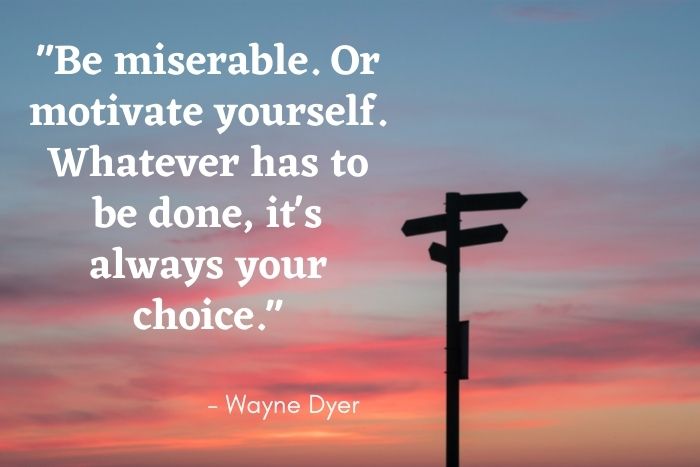How do you stay motivated to get things done?

We all want things – most of us want to be healthier, make more money, have more friends or learn new skills. But as we all know far too well, just wanting something doesn’t really do anything for you – you have to take action, put in the work, sometimes endure the pain to achieve the outcomes you want. And that’s where your motivations come into play.
If you’re truly motivated, then you’ll be willing to face the challenges and put in the effort to overcome them. If you’re not really motivated, well you’ll likely fail quickly.
So motivation is critical for starting and continuing on any kind of worthwhile effort – but how to make sure you’re properly motivated (and stay that way). That’s the question that author Ayelet Fishbach asked (and answered) in her new book Get It Done. She covers lots of great ideas and a solid framework for achieving goals – but here are the big ideas that stood out to me.
Ideas to help motivate you
Have More Fun…
Intrinsic motivation is extremely powerful. We are much more likely to do something we enjoy or appreciate than something someone tells us to do or something we ‘should’ do.
If you want to be more likely to follow through on something, find a way to add some fun to it. If you’ve set a goal to exercise more, how can you make that exercise more fun? Can you add something to to process that’s rewarding?
Example – playing a game (pickleball, basketball, flag football) can be a lot of exercise but that’s not a problem when you’re having fun. Alternatively, treat yourself to listening to a great podcast or book when you’re walking or on the treadmill.
Watch out for the Middle…
When you’re embarking on a new project, you’re a lot more likely to be fired up when it starts. Likewise, you’re also going to get an extra kick of motivation when you’re close to finishing (that last lap is always a little easier). But everything in the middle is a risk – you’re past the honeymoon stage of getting started and you’re not close to finishing so you’re a lot more likely to slack off, lose focus or just stop.
To combat this, one strategy that can help is to set shorter goals – instead of planning to eat well for a month, start with a week and then repeat it 4 times. That gives you 4 beginnings and endings and reduces the number of middle days. If you have a long term project / goal that you’re trying to achieve – break it into manageable short pieces and celebrate starting and completing each phase along the way.
Look back to stay motivated…
When you’re trying to do something that’s going to take a long time or is hard to define, it can be difficult to stay motivated. Saving for a great retirement is a worthwhile goal but you’re looking at years (or more likely decades) and it’s possibly a loose target. Looking ahead for that kind of goal can actually be demotivating (unless you’re close to the end) so a better strategy is to instead look back to see how far you’ve come. That progress will reinforce why you started and help you stay on course.
Think broadly to avoid temptation…
We all have off days and it’s easy to convince yourself to slip when it’s just one time. I’ve been eating really well – what’s one day where I snarf down a 1/2 dozen doughnuts? That kind of temptation can be really hard to overcome – and the reality is that it’s almost never just one day – that one time becomes the first crack in the armor and before you know it you’ve completely lost your way.
One way to mitigate this risk is to multiply whatever temptation you’re thinking about. One day with some doughnuts isn’t a big deal, but what if it was every day? There’s no way I can convince myself that can be remotely healthy – and so I’m a lot less likely to give in. To stretch this even further, think in terms of setting rules that will apply for a long period of time – no more than 2 doughnuts a week… (as you might guess, I have a real weakness for doughnuts) 😉
Get some Social Support…
It may sound cliché but things are easier when they’re done with a friend. If you’re trying to do something that’s hard (and most worthwhile things are…) then you’ll be a lot more likely to stick with it if you do it with someone else who has a similar goal. Take a class with a friend, start an eating plan with your spouse or a family member, plan exercise with someone in your neighborhood. Having someone else share your journey will push you to do more than you could on your own and give you an extra boost of support when things are tough.
And – as an added bonus, sharing a challenge with someone is a great way to build a relationship.
We all want great outcomes – but that generally means doing hard things and having the ongoing motivation to push through those challenges. The good news is that there’s a lot of science and ideas that can help you. What are you trying to accomplish that’s hard? Have you thought about your motivation? We’d love to hear your thoughts.
Shawn Kinkade Kansas City Business Coach
